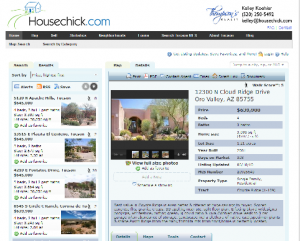Understanding IDX
I have the good fortune this year to be on the NAR MLS Issues and Policies Committee. Sounds thrilling, right? Later in August, there’s a sub-group meeting where we’ll discuss such exciting topics as RSS feeds! And IDX regulations! And PDA applications!
It’s important work, but a bit dry. So bear with me here while we look at one of the basics: IDX.
IDX is short for Internet Data Exchange. In a nutshell, an IDX agreement means that agents can display listings from the MLS on their own site. Because IDX rules exist, agents and brokerages are allowed to have home searches on their websites. Sometimes, IDX is called Broker Reciprocity – every brokerage wants a home search on their website, so they’ve agreed to allow each other to display the other brokerage’s listings.
Simple enough, right? But there are lots of rules. Display requirements being one of them.
As a buyer’s agent, I want a property search on my website because people online might find a home on there and call me. It generates potential clients to have an IDX – a property search – on my site. BUT, I need to be clear when I display those listings that they aren’t mine, that they belong to some other broker.
As a listing agent, I want my listing to be displayed on as many sites as possible, so I agree to let anyone display it on their site according to the IDX rules. I want to promote the property for my seller as widely as possible, and IDX is one tool in my arsenal to help me do that.
Each MLS has their own set of display requirements, and NAR has an IDX policy as well. Typical requirements include disclosure of the source of the data, clear representation of what broker has that listing, and sometimes also display requirements of a fair housing logo or the IDX logo.
Luckily, if your brokerage doesn’t provide you a property search, or if you want something with advanced features, there are lots of services out there to help you. These companies are called IDX providers. They had to sign agreements with your MLS in order to access the data and, usually, have been audited for compliance with all the rules. So if you find an IDX provider with access to your MLS, chances are they are fully compliant with the regulations, and you can just plug it into your website relatively painlessly.
I know both the Tucson MLS and ARMLS are using the FlexMLS system, which offers an IDX you can put on your site. In Tucson, that’ll cost you $240/year currently. Or you can just Google “IDX Providers” and find a whole host of people that can help you put a property search on your site.
Tags: IDX, MLS, website